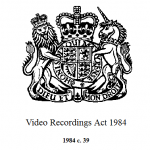Law Weblog
The Criminal Procedure Rules 2010
Wednesday 3 February 2010 at 3:27 pm | In News | Post Comment The Criminal Procedure Rules 2010 come in to force on 5th April 2010. The rules repeal the 2005 rules, consolidate all previous amendments and introduce extensive further changes.Info here
Relatives of murder victims to get one-to-one support
Tuesday 2 February 2010 at 2:51 am | In News | Post Comment The families of murder victims are to be offered one-to-one support seven days a week under the national victims’ service to be launched in March.The service, funded with £8m of Ministry of Justice money, is being run with Victim Support and other specialist victims’ organisations.
Jack Straw
“The system was geared squarely towards offenders. We have worked hard over the last 13 years to change this – successfully cutting crime and cutting reoffending but also focusing the justice system on the needs of victims and of the communities who live with the consequences of crime when it does occur.”
The launch follows a study by the government’s victims’ champion, Sara Payne.
Competence of witnesses, a 4-year-old
Tuesday 2 February 2010 at 2:46 am | In News | Post Comment R v BARKER [2010] CAThe competence of a 4 year old child to give evidence was not in question.
The question of competence is now entirely “witness specific” and must be taken on an ad hoc basis. In the event that a child could not provide intelligible answers to questions in cross-examination or it was impossible to conduct a meaningful cross-examination, the evidence could reasonably be excluded under section 78 of the Police and Criminal Evidence Act 1984.
There was no basis to justify interfering with the judge’s conclusion in this appeal that the competence of the child as a witness was established and remained established after her evidence was concluded. Appeal dismissed.
New offence of encouraing or assisting suicide, hearsay rules amended and bail in murder cases limited to crown court
Tuesday 2 February 2010 at 2:40 am | In News | Post CommentEncouraging or assisting suicide
Section 59 of the Coroners and Justice Act 2009 amends section 2 of the Suicide Act so as to replace the substantive offence of aiding, abetting, counselling or procuring suicide and the separate offence of attempting to commit the section 2 offence with a single offence cast in modernised language. The Criminal Attempts Act 1981 therefore no longer applies to section 2 of the 1961 Act. However, the scope of the law remains the same so these changes do not make liable to prosecution anyone who was not liable before.
Admissibility of evidence of previous complaints
Section 120 of the Criminal Justice Act 2003 is part of the code on hearsay evidence (that is, evidence not given orally by a witness during the trial) set out in that Act. It provides for the admission as evidence in criminal proceedings of certain previous statements of witnesses.
The requirement that the complaint was made as soon as could reasonably be expected after the alleged conduct, is removed, and a complaint or complaints will be admissible regardless of when they were made.
The purpose of the change is to help improve successful prosecution of sexual offences while ensuring that the defendant’s right to a fair trial is not undermined, although the change applies to all offences, not just sexual offences.
Bail and Risk of committing an offence causing injury – murder
The Bail Act 1976 is amended to provide that a defendant who is charged with murder may not be granted bail unless the court is of the opinion that there is no significant risk that, if released on bail, the defendant would commit an offence that would be likely to cause physical or mental injury to another person.
Bail decisions in murder cases to be made by Crown Court judge
This section provides that a defendant who is charged with murder (including one charged with murder and other offences) may not be granted bail except by a judge of the Crown Court. The power of magistrates to consider bail in murder cases is thus removed.
Circular here
People remain convicted for offences under unenforceable Act
Saturday 30 January 2010 at 2:37 pm | In News | Post Comment The Video Recordings Act 2010, received Royal Assent last Thursday and it has produced a Constitutional Law anomaly.The Video Recordings Act 1984 made it a criminal offence to sell videos, DVDs and video games not in accordance with the correct classification certificate, for example to children or those that should only be sold in licensed sex shops.
However, Parliament enacted the 1984 Act in breach of the Technical Standards Directive, a European Community law that requires that the European Commission be consulted. This breach of EU law made the 1984 Act unenforceable. It is unheard of for an Act of Parliament to be legally unenforceable.
From September prosecutions stopped, and appeals have been unopposed by prosecutors.
Last week Parliament revoked and re-enacted the 1984 Act. The new Act does not have retrospective effect, so those accused of offences last month cannot be prosecuted under the 2010 Act.
What is not known is what will happen to those who were prosecuted and convicted under the 1984 Act and who are out of time to appeal, should their convictions now be revoked as not being in accordance with law?
Courts will not set aside convictions unless there are exceptional circumstances and there has been a substantial injustice. It is almost certain that these events will find a place in all constitutional law textbooks
New offence for under-18s of persistently possessing alcohol in a public place
Saturday 30 January 2010 at 9:23 am | In News | Post Comment From 29 Januayr 2010, police have new powers to tackle underage drinking, including making it easier for them to confiscate alcohol, move on groups of teenagers causing trouble and stop retailers selling to underage children.The powers, introduced through the Policing and Crime Act 2009 include:
– confiscating alcohol from young people – by amending police powers to confiscate alcohol so that they no longer need to prove that the individual ‘intended’ to consume the alcohol;
– extending the police’s ability to issue ‘Directions to Leave’ so that they can be issued to people aged 10-15; and
– introducing a new offence for under-18s of persistently possessing alcohol in a public place;
– changing the offence of persistently selling alcohol to under 18s from three strikes within three months to two strikes in the same period.
Also coming into effect on 29 January are new powers for local councillors to tackle problem premises. In addition to the police and members of the public, local councillors will now also be able to call for a review to restrict or remove an alcohol retailer’s licence.
Sara Payne’s National Victims Service
Saturday 30 January 2010 at 1:50 am | In News | Post Comment The relatives of manslaughter and murder victims have been promised they will be the first to benefit from a new £8m support scheme.The National Victims Service will offer victims a dedicated support worker to help them get access to any assistance they need.
The service is being created in April following the report from Sara Payne.
The service will make support for victims a “core function” of the criminal justice system rather than an “optional add-on”.
“It is a pity that it has taken the common sense approach of a mother who lost her young daughter in tragic circumstances to tell the government the direction it needed to take on this issue
David Howarth MP
“This re-heated announcement only highlights the gulf between this government’s promises and its action.
However Dominic Grieve MP
“Gordon Brown has let over 70,000 criminals out of jail early, and plans to force through lighter sentences for serious criminals – what kind of justice is that for victims?
Mrs Payne – who is recovering after suffering a brain aneurysm before Christmas – published her report calling for the new service after spending nine months speaking to victims and witnesses and studying front-line services.
Her eight-year-old daughter Sarah was murdered in 2000 by known paedophile Roy Whiting.
In defence of the home and family, the debate (again)
Friday 22 January 2010 at 6:13 am | In News | 1 Comment The Lord Chief Justice, Lord Judge has restarted the debate over the force used in defence of the home and family.In commuting Munir Hussain’s 30-month prison term to a suspended sentence as an “act of mercy”, he said that the “call for mercy” on their behalf was intense and that the court had concluded that it “must be answered”.
But he stressed:
“This trial had nothing to do with the right of the householder to defend themselves or their families or their homes. The burglary was over and the burglars had gone. No one was in any further danger from them.”
File sharing may not be illegal
Sunday 17 January 2010 at 3:12 pm | In News | Post Comment The first, and may be the last trial for file sharing ended in acquittal this week. Prosecutors were unable to establish when downloading music breaks the law. They may never be able to, even with proposed new legislation.Alan Ellis, 26, ran Oink, one of the world’s largest music sharing websites, but Teesside Crown Court cleared him of conspiracy to defraud. Ellis received £11,000 a month in donations from people using the site. Oink had almost 200,000 members and facilitated the download of 21m music files between 2004 and 2007. Mr Ellis, a software engineer told the court he had no intention to defraud copyright holders, and he had developed the site to brush up on his computer skills. The prosecution was unable to show that Mr Ellis knew he was infringing copyright.
Prosecuting individuals who have downloaded just a few music files is costly and generates a lot of negative publicity for music companies. To prosecute successfully people who run file-sharing sites is all but impossible because there is no copyright violation; they do not hold any of the music files themselves, just the software.
Under the Digital Economy bill, internet service providers could be required to cut off web access from customers downloading large amounts of material illegally in the unlikely event that they were able to prove illegal downloading.
Sean Hodgson may receive millions in compensation
Friday 15 January 2010 at 9:38 pm | In News | Post Comment In 2008, Sean Hodgson’s conviction for killing Teresa De Simone, 22, in Southampton in 1979 was quashed after new DNA evidence came to light.Miss De Simone’s body was found in the back seat of her Ford Escort in a car park beneath the Tom Tackle pub.
Suspected of her killing, Mr Hodgson confessed to her murder at the time of the original inquiry but pleaded not guilty at his trial in 1982, where his defence team said he was a pathological liar.
In 2008, DNA revealed David Lace as the suspected killer. Lace, who confessed to the murder in 1983, killed himself in December 1988, aged 26.
Mr Hodgson could be in line for the maximum £1m compensation from the MoJ, while further planned action against the Forensic Science Service (FSS) and Hampshire police could also top more than £1m.
Mr Hodgson has received a £200,000 interim payment from the MoJ following his release, although his access to the cash is limited for his own protection.
Powered by WordPress with Pool theme design by Borja Fernandez.
Entries and comments feeds.
Valid XHTML and CSS. ^Top^








